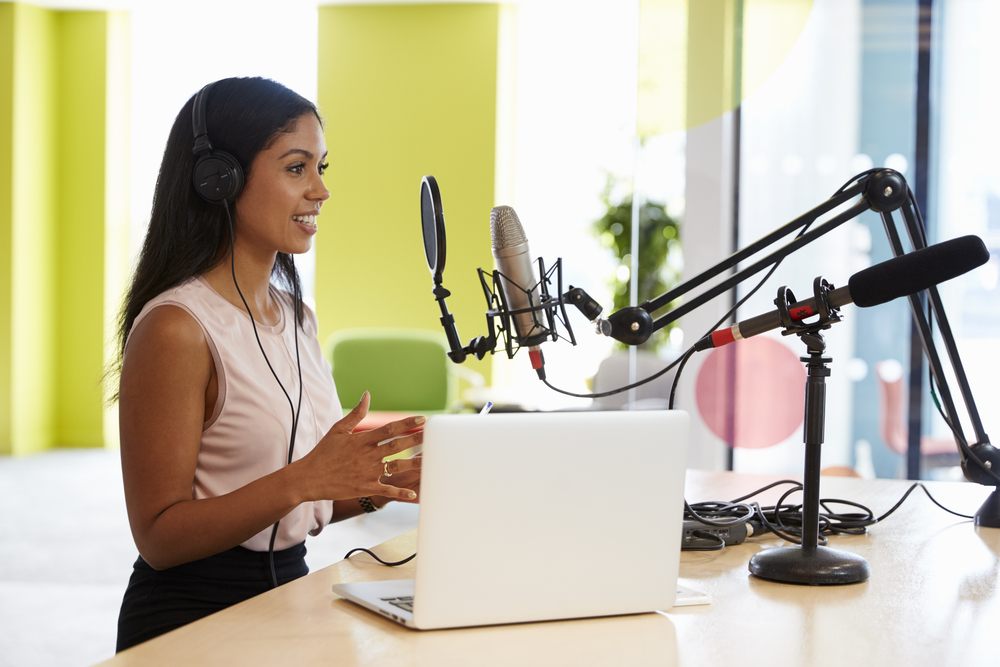
Podcasting is more popular than ever. Unbelievable numbers of people listen to at least one podcast weekly– 165 million in the United States alone and plenty more across the world. That’s a huge audience, making podcasts a top, in-demand item.

Are You Ready To Work Your Ass Off to Earn Your Lifestyle?
Are you tired of the daily grind? With a laptop and an internet connection I built a small website to generate income, and my life completely changed. Let me show you exactly how I’ve been doing it for more than 13 years.
But is the field of podcasting too crowded? According to Podcast Insights, there are over 2 million podcasts, but with hundreds of millions of people all over the world listening, there is still plenty of room for new content, and of course, plenty of room to make money.
Starting a podcast from scratch isn’t that difficult. You just need some basic equipment, a great niche, and the ability to create content that an audience would find interesting. Podcasting has a low barrier to entry. All you need is an area of expertise or even just an interest, and you are well on the way to getting started in podcasting.
But what if you want something more than a hobby? What if you want to use a podcast to make money?
While paid podcasts can be a thing, they are few and far between. And if you’re just starting out, you are not likely to get placed on a paid podcast platform.
But even– no, especially— with a free podcast, you can make plenty of bucks monetizing it in other ways.
How Much Money Can Podcasts Make?
How much you can make depends on the podcasts and your monetization methods. Luckily, you can easily monetize your podcasts in at least four different ways.
Like anything else, the number one thing you can do to make money in podcasting is to create quality content. If you give the market something it finds valuable, the market will reward your efforts.
Top-Earning Podcasts
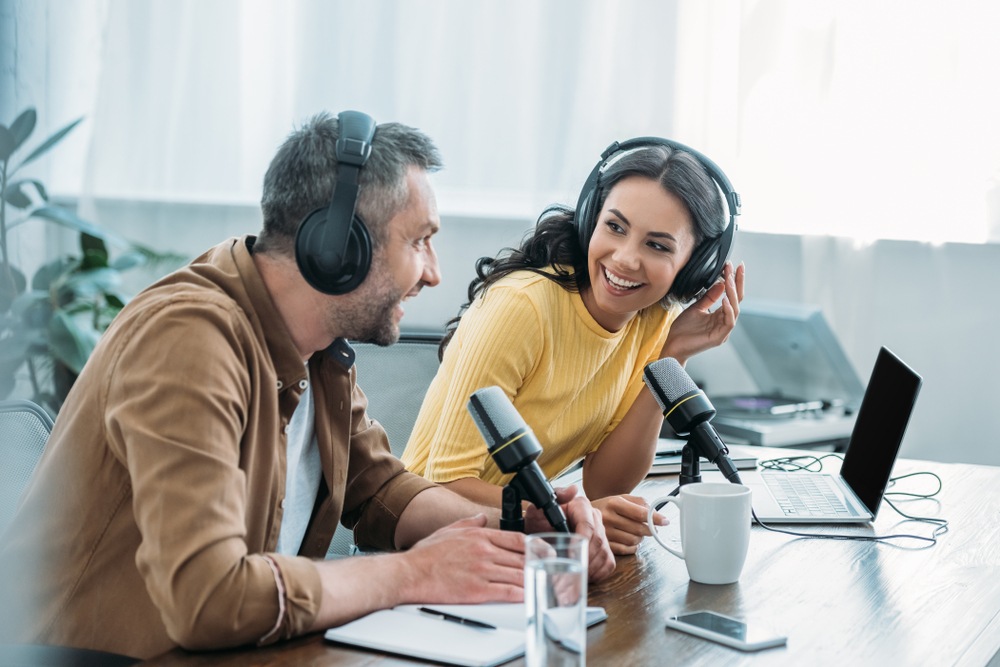
Though corporate entities have taken advantage of one of the newest art forms– podcasts– most started as indie enterprises. There are plenty of top-earning indie podcasts started from scratch and which are now making millions per year.
Imagine that– making millions of dollars sitting in your basement and talking in a microphone? Let’s look at a couple of podcasts that did just that.
My Favorite Murder
When Karen Kilgariff and Georgia Hardstark started My Favorite Murder in 2016, they probably never envisioned their true-crime podcast would become the second most popular podcast in the world. They parlayed their tagline– “Stay Sexy, Don’t Get Murdered” into a best-selling memoir, and their comedy tour routinely sells out.
They did all of that by delivering exactly what their audience hungered for: true crime and comedy.
Smart Passive Income
Pat Flynn started his popular podcast Smart Passive Income under the worst possible circumstance: he had just gotten laid off from his job. Nevertheless, his loss became his greatest gain and now his podcast earns $1.2 million per year.
His podcast focuses on interviewing industry experts and entrepreneurs on how they were able to make money from online businesses. His listeners crave this expert advice, which helps them build their own online businesses.
The Joe Rogan Experience
Joe Rogan is the ultimate example of how you can start a podcast from nothing but you can a couple of friends posting your conversations online. Joe Rogan started his podcast in 2009. For many years, he just talked about things he thought were interesting, from aliens, to MMA, to diet, to conspiracies, and current events.
His style of speaking and opinions turned out to be popular, because now he’s the biggest podcaster in the world, and recently closed a deal with Spotify for $200 MILLION DOLLARS.
How Do Podcasts Make Money?
Affiliate Marketing
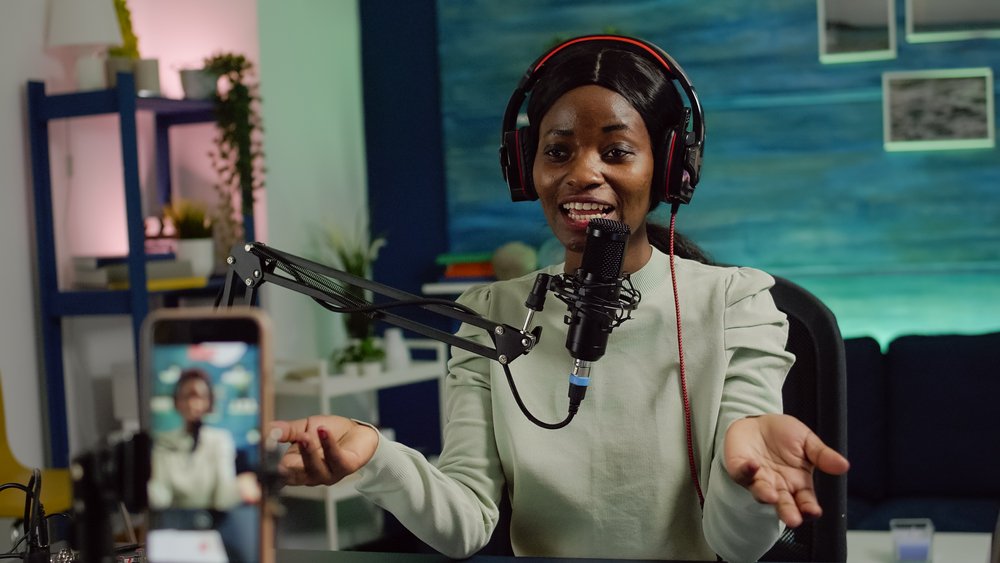
Affiliate marketing is one of the best ways to monetize a website, but did you know you can also monetize a podcast that way?
How Affiliate Marketing Works
An affiliate marketer pays you when you sell one of their products. On a website, this is done with a unique link. It works the same way with a podcast, only you as the podcaster has to read out the link or give a specific code during your podcast. The commission you get through affiliate marketing varies widely – anything from 1% to 100% depending on the product.
As with websites, being transparent about the fact that you are getting paid when people purchase through the affiliate link is useful for two reasons. First, it allows you to maintain your credibility as a podcaster when recommending products. Second, it makes your listeners want to click on the link (if they’re interested in the product) to support you.
How to Choose Good Affiliate Partners
Here are some criteria to consider when choosing good affiliate partners for your podcast:
- Choose reputable partners. If their product does not enjoy a good reputation, it can bring down your brand.
- Get a link that’s easy to pronounce. When you have a website, this doesn’t matter as much, but to make money as an affiliate, you will have to pronounce the link, possibly multiple times during the show. You can also include this in the written show notes, but the easier it is to pronounce, the more likely your listeners are to access it. A good affiliate link contains the name of the product or site and then a forward slash and the name of your show.
Audible has a great affiliate program that is appropriate for a wide range of podcasts, from business topics to literary ones. It takes around a week or slightly longer to get approved as an affiliate, but once you are, you’ll make $15 for each trial membership your listeners sign up for. Even if they don’t sign up for a paying program, you’ll still get paid.
Sponsorships
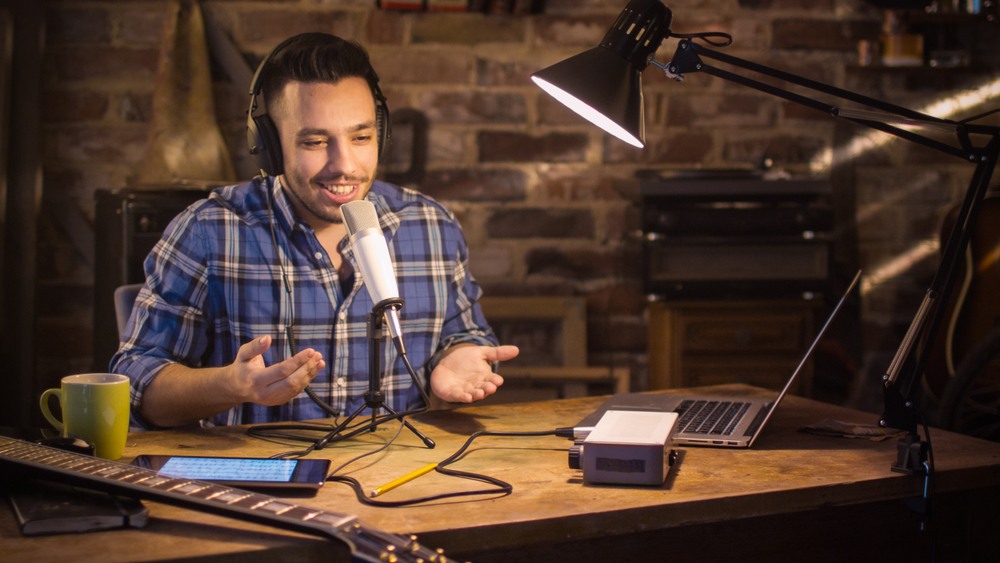
Believe it or not, your indie podcast can make money the same way a popular radio station can– through sponsorships. Sponsorships differ from affiliate marketing in that your listeners don’t have to visit a website for you to get paid. Sponsors pay you depending on how many times that episode is downloaded.
Usually this is done through an “ad read” at the beginning of, or in the middle of an episode. In this model, you are not paid per sale. Instead, you may get a flat fee per episode, or paid per each download/listen.
CPM
You get paid from sponsorships through a method called “cost per mille.” Mille is the French word for a thousand, so you receive a set rate per 1,000 downloads of a podcast episode. If your sponsor pays a CPM of $10, and your episode is downloaded 2,000 times, you’ll make $20.
According to Podchaser, here are some average industry-wide CPM rates for podcasts:
- Pre-roll ads (those at the beginning of a podcast) pay an average of $15 CPM.
- Mid-roll ads pay an average of $30 CPM
- Post-roll ads pay an average of $10 CPM
If you can reach 100,000 downloads, you’ll make $1,500, $3,000, and $1,000 for ads you run at the beginning, middle, and end of your podcast respectively.
Finding Sponsors
The best way to find prospective sponsors is to pitch them directly. You don’t have to do extensive marketing research to find ideal sponsors. A good way to start is by approaching sponsors who are advertising with similar podcasts. With luck, they’ll want to advertise for your podcast as well.
Companies like Acast specialize in helping people produce their podcasts, which includes connecting podcasts with advertisers. As with Adsense, the drawback to this is that, as the middleman, Acast takes a healthy chunk of what the sponsor pays you.
Paid Appearances
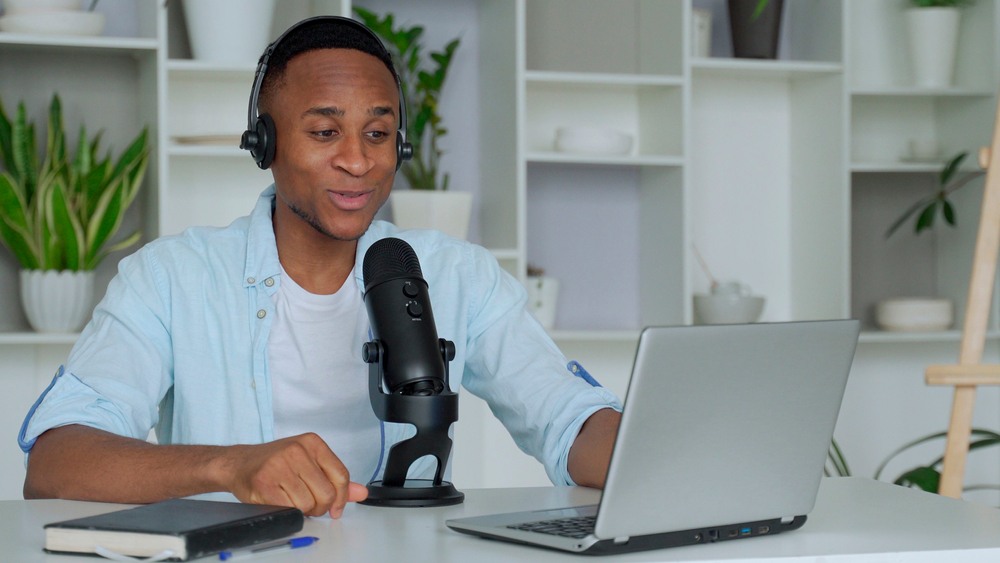
Another way of making money is by charging for appearances. This would be most appropriate if you had a significant audience and a guest wants to come onto the show to promote a product.
How to Find Paying Podcast Guests
Once your podcast is famous, you’ll probably have agents and business managers stuffing your inbox with requests to have their clients appear on your show.
This is by no means common. Shows are more likely to pay guests to appear than to be paid by guests. This is how you get content, and you get paid by advertisers, so the guest is basically doing you a favor by appearing.
Paying for guests is not common. In most cases, the podcast neither pays nor receives money from its guests since it’s a mutually beneficial relationship. The host gets ad money, the guest get free advertising.
But some podcasts charge $5,000 to people to appear on their show. How do they find guests willing to pay for appearances? Often through podcast “matchmaking” services like MatchMaker.
Supporting Your Business
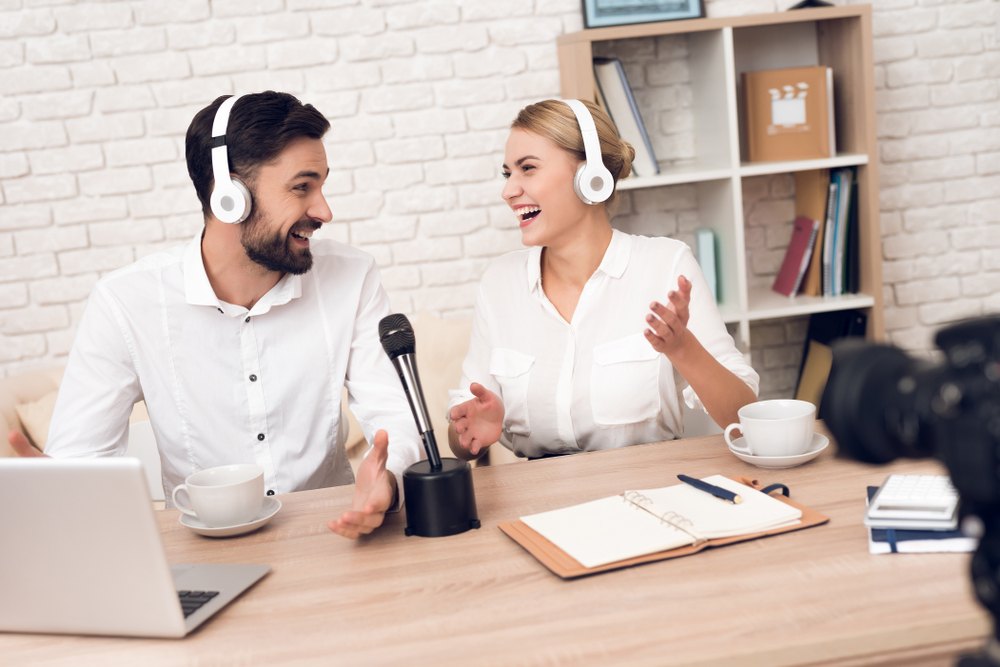
The number one way your podcast can make money is by driving traffic to your other businesses. Think of your podcast as the “free” in your “freemium” business model. You create and curate great, valuable content with your podcast, and you can drive your customers to pay you for other products.
Book Sales
If you’ve written a book on any subject, you can pay thousands to advertisers to pump your product or you can bootstrap your own book marketing with a free podcast.
You can do this whether you write fiction or nonfiction. As a fiction writer, you can make a literary podcast or a podcast with tips to help struggling writers get discovered. Whatever your topic, once you build enough credibility and rapport with your audience, they will want to buy your book.
Online Courses
Similarly, if you have a particular insight or area of expertise, you could build a course around it. Then you could sell that course from your own website or a course network like Teachable.
But how do you get people to take your course? By promoting it on your very own podcast.
The reason podcasts work so well for driving course sales is that you are giving someone a free sample of the quality product they’ll receive if they pay for the course. You have a much higher chance of making a successful sale if your customer has heard of you and knows you will deliver value for their dollar.
Selling Your Own Products
Besides books and courses, you can also make money by promoting other products that you sell. If you sell a line of beauty products, for example, one of the best ways you can build your sales is by hosting a beauty podcast. Extra points if you can get an expert in the field or a minor celebrity to come on your podcast to tell the world how great your products are.
The key to doing a podcast to shill your products is to not make your podcast sound like an infomercial. Again, delivering quality is what you want to do to promote the sale of your widgets, subscriptions, or whatever other product you sell.
Blog & YouTube Advertising
One of the easiest ways to grow the income of any media company you start is to repurpose content across multiple platforms. Every content consumer has a preferred platform, and if your podcast is popular, you may be leaving money on the table by not publishing the same content on other mediums like video and text.
One simple way to reach a YouTube audience is simply to start video recording your episodes and publish them directly to YouTube. If you edit your podcasts, having an “unedited version” up on YouTube could even get some listeners to double up and listen/watch an episode twice. Believe it or not, some people will sit and watch a whole video on their computer rather than just listen to a podcast in their car. I find that I do this when I really enjoy a podcasters speaking style, since you can see more affectations. It’s more like having a conversation with someone rather than listening in on someone else’s conversation.
Another medium to hit is blogging. With text articles on a blog, you get the added benefit of getting your content included in search engine results. A simple hack is simply to publish the transcripts of your conversations. This is relatively low effort and could land you some new podcast subscribers.
Of course, it’s better to produce edited, unique content that is specifically formatted for a blog so that a reader can engage with text content as they normally would. Reading transcripts is not easy. Within the content, you can also embed your podcast and YouTube video.
The same methods of monetization can be applied to blogs and video, including sponsored ads, affiliate links, discount codes, and premium subscription models.
Premium Podcasting
Despite the fact that most podcasts use the free content + advertising model, there are a growing number of podcasts that are going the freemium route, and offering paid version of their podcasts. Based on the paid podcasts I listen to, it seem that this methods requires an unbelievable amount of work, but as with most things in life, it can also be extremely rewarding. This is a chance to develop your own podcast tribe, which could develop into a thriving business and growing number of future opportunities in the decades to come
One simple way to set up a premium podcast subscription is through the Patreon platform. Patreon is not for podcasts specifically. You can offer premium content with a variety of mediums, including video and written content. Using Patreon could be an opportunity to expand into different media for your brand, offering video, personal 1-on-1 chats, or other perks for Premium subscribers. The paid podcasts I’ve listened to in the past that were using Patreon simply had an extra episode each month that would be delivered (via Patreon) directly to my normal podcast app.
For podcast-specific premium subscription service, Supercast is amazing. Targeted specifically for podcasters, there’s a number of custom options that listeners will love, the best of which is the “ad-free” option. This makes the benefit to the listener very clear. Listen for free with ads. Listen ad-free for a single monthly fee.
Similar to Patreon, you can also customize the feed with additional content using Supercast, delivering extra episodes each month to any podcasting app your listener uses. One podcast I listen to uses an effective, albeit annoying model with Supercast is the half-and-half premium model. With this monetization model, a podcaster will releases half on an episode for free to everyone, then the second half is only for Premium subscribers.
Of course, the second half is always more interesting, and you’re left with a cliffhanger, which makes it hard to listen at all if you’re not a paying listener. As I said: very effective + very frustrating as a free listener. Seems to work though. They got my money.
What You Need to Get Started in Podcasting
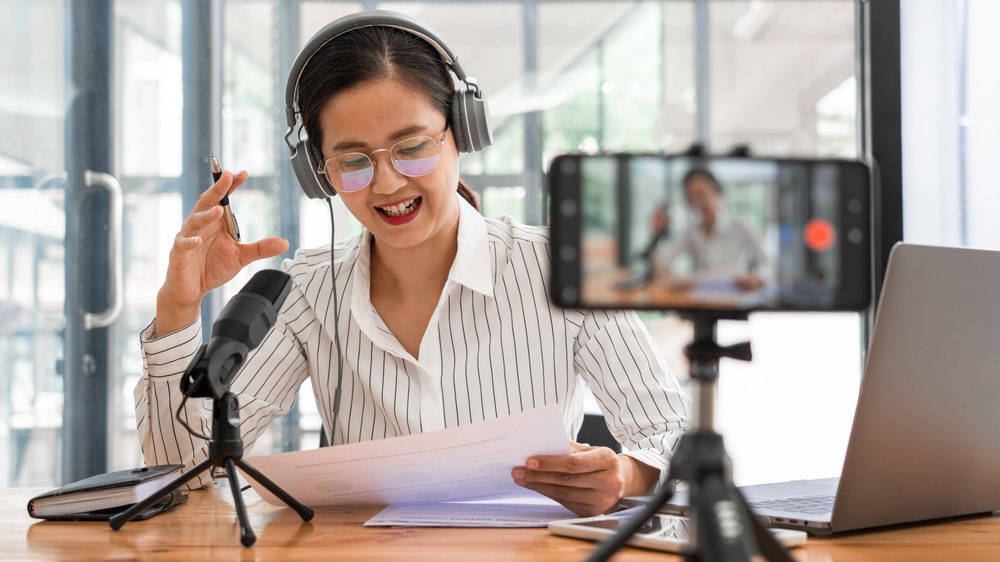
You can’t make money podcasting unless you acquire some quality audio equipment first. If you plant o make money with this business, you need to start off on the right foot. Don’t record through your Airpods. It’ll cost you a couple hundred dollars for a basic podcasting setup, but there are always budget options, and you can upgrade your equipment later.
Microphones
The most essential item you’ll need to acquire for your entré into podcasting is a quality microphone. You can spend thousands on a quality microphone, but you certainly don’t have to. This Blue Yeti USB microphone costs a little more than a hundred bucks, but it has all the quality you need to record a quality show.
When choosing a mic, make sure you get one with a USB or other connection that is compatible with your computer. You’ll want to be able to connect the microphone directly to your computer to make it easy to edit using your software. If you have a Mac, GarageBand is a free app that has excellent audio editing capabilities, which you can use for your podcast.
Headphones
How important are headphones for podcasting?
More important than you probably know. You want to control the podcast now to minimize the editing you’ll have to do later.
Microphones pick up EVERYTHING, not just your voice. By listening to what the microphones are picking up, you can make sure you sound good, your sound effects sound good, and your cat loudly purring on your lap can’t be heard at all.
Have a guest on your show? Make sure they have their own microphone AND their own headphones. Otherwise, you will have a mess to try and edit.
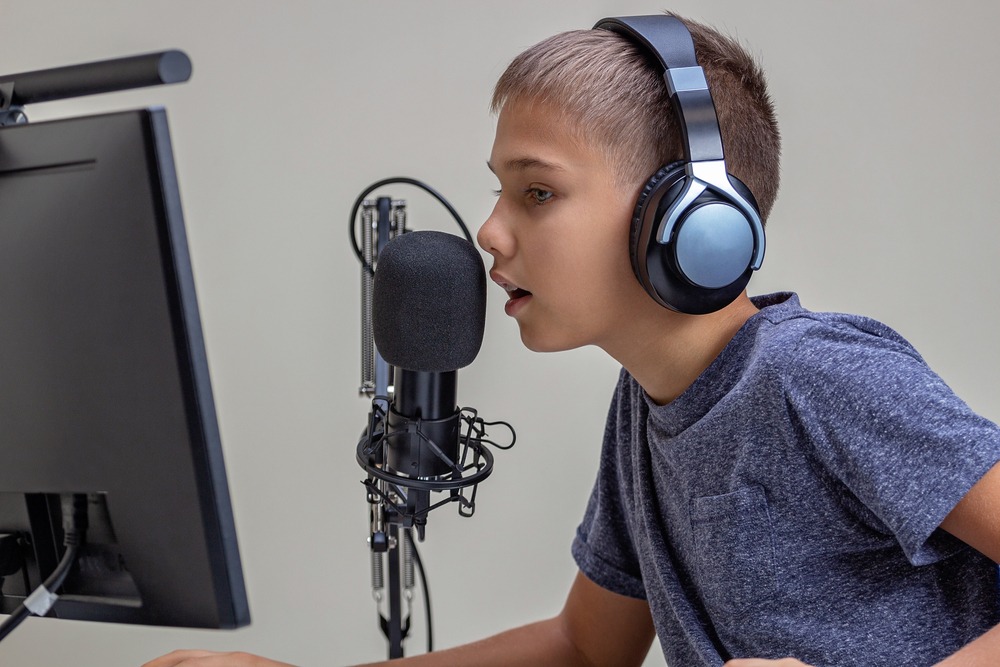
Frequently Asked Questions
How many downloads is considered a successful podcast?
If your episode is downloaded 3,400 times, you will fall into the top 10% of all podcasts. That is why you want to use as many ways to monetize your content as possible without undermining its quality.
What are the best days to release podcasts.
Experts recommend releasing podcasts early in the week. Mondays, Tuesdays, and Wednesdays see the highest number of episode downloads. These days are the beginning of the work week, so many people listen on their commute. On the weekends people have more free time, but most people aren’t spending an hour stuck in their headphones listening to a podcast. They are out doing stuff!

Nathaniell
What's up ladies and dudes! Great to finally meet you, and I hope you enjoyed this post. My name is Nathaniell and I'm the owner of One More Cup of Coffee. I started my first online business in 2010 promoting computer software and now I help newbies start their own businesses. Sign up for my #1 recommended training course and learn how to start your business for FREE!

 13 Veteran-Owned Clothing Companies
13 Veteran-Owned Clothing Companies
Leave a Reply